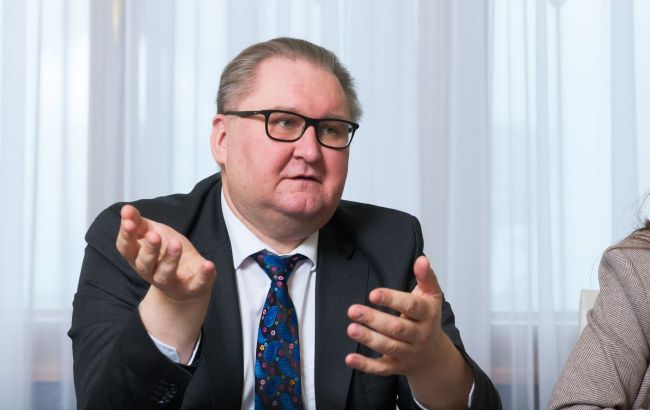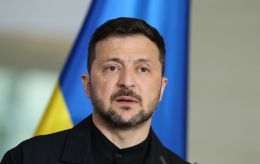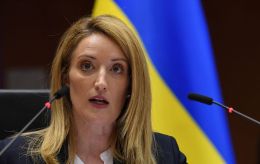Ukraine’s EU future: Deputy PM outlines expectations from first cluster
 Taras Kachka (Photo: Vitalii Nosach, RBC-Ukraine)
Taras Kachka (Photo: Vitalii Nosach, RBC-Ukraine)
Deputy Prime Minister for European Integration Taras Kachka told the ministers of five European countries what Ukraine expects from the launch of the first negotiation Cluster, Fundamentals of the EU Accession Process, according to the Office of the Deputy Prime Minister for European and Euro-Atlantic Integration.
On August 18–19, Taras Kachka held phone conversations with:
- Spanish Foreign Minister José Manuel Albares;
- Finland’s Minister for European Affairs and Ownership Steering, Joakim Strand;
- Portuguese Foreign Minister Paulo Rangel;
- Greek Foreign Minister Giorgos Gerapetritis;
- Austria’s Minister for European Affairs, Claudia Plakolm.
The counterparts coordinated their positions ahead of the informal meeting of EU ministers for European affairs with the participation of enlargement countries. The meeting will take place in Copenhagen in early September.
The key issue of the event was various aspects of EU enlargement. The Deputy Prime Minister informed his European colleagues that Ukraine expects the swift opening of the first negotiation Cluster, Fundamentals of the EU Accession Process.
Taras Kachka told the EU ministers that Ukraine continues to implement reforms that bring the country closer to membership, particularly in the areas of the rule of law and anti-corruption.
Specifically, the following steps have been taken: the law strengthening the institutional independence of NABU and SAP was adopted; the law on ARMA reform was signed; the competitive selection process for appointing a new head of the Agency with the participation of international experts was launched; the competitive selection for the head of the State Customs Service began; and the head of the Economic Security Bureau was appointed.
As previously reported by RBC-Ukraine, on July 31, Ukrainian President Volodymyr Zelenskyy signed a law restoring the independence of the National Anti-Corruption Bureau (NABU) and the Specialized Anti-Corruption Prosecutor’s Office (SAP). Prior to this, the law had been approved by the Verkhovna Rada.
As noted in her post by the European Union Ambassador to Ukraine, Katarína Mathernová, the restoration of institutional independence for NABU and SAP became possible thanks to three factors:
- public opinion;
- intensive behind-the-scenes negotiations;
- acknowledgment of past mistakes.
On July 22, the Verkhovna Rada passed a law that curtailed the powers of NABU and SAP.
This sparked large-scale protests in Kyiv and other Ukrainian cities.
The European Commission called the law a serious step backward for Ukraine.

